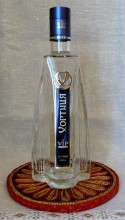
Is Vodka Actually Made of Potato
Vodka is a spirit that is made through the distillation of fermented substances. The only thing required from these substances is that they are naturally high in fermentable starch or plant sugars, and whilst grains like sorghum, corn, rye or wheat amount for the majority of Vodka produced these days, Potatoes are also a possible source of starch and thus a perfectly feasible ingredient in making vodka, as are molasses, soybeans, grapes, rice, sugar beets and occasionally even industrial byproducts of oil refining or wood pulp processing.
Why say "No" to Potato?
Now that we've established the potato as being a perfectly good ingredient in the making of Vodka, it begs the question why do so many distillers continually opt for grains like rye and wheat? Well the truth is there's a long list of crops that could be grown to be used in the manufacture of Vodka (including pumpkin, apple, onions and carrot!).
The first reason grains are often seen as a safe bet is because, as crops, they are more durable and more likely to survive in the harsh conditions that can be found in Russia, the Ukraine, Sweden, Poland and other big exporters of Vodka.
The second factor is that grain has a much higher yield, with 100kg of potatoes only yielding around 10 liters of alcohol, whilst the same weight in grain could produce around three times as much.
Having said that, potato Vodka has, in recent years, been able to shed it's image as a slightly clandestine source of Vodka, and what was once confined to the realm of shady bathtub-concoctions is now being selectively bred to create a vodka-purpose 'super potato' with a starch content twice that of ones destined for human consumption.